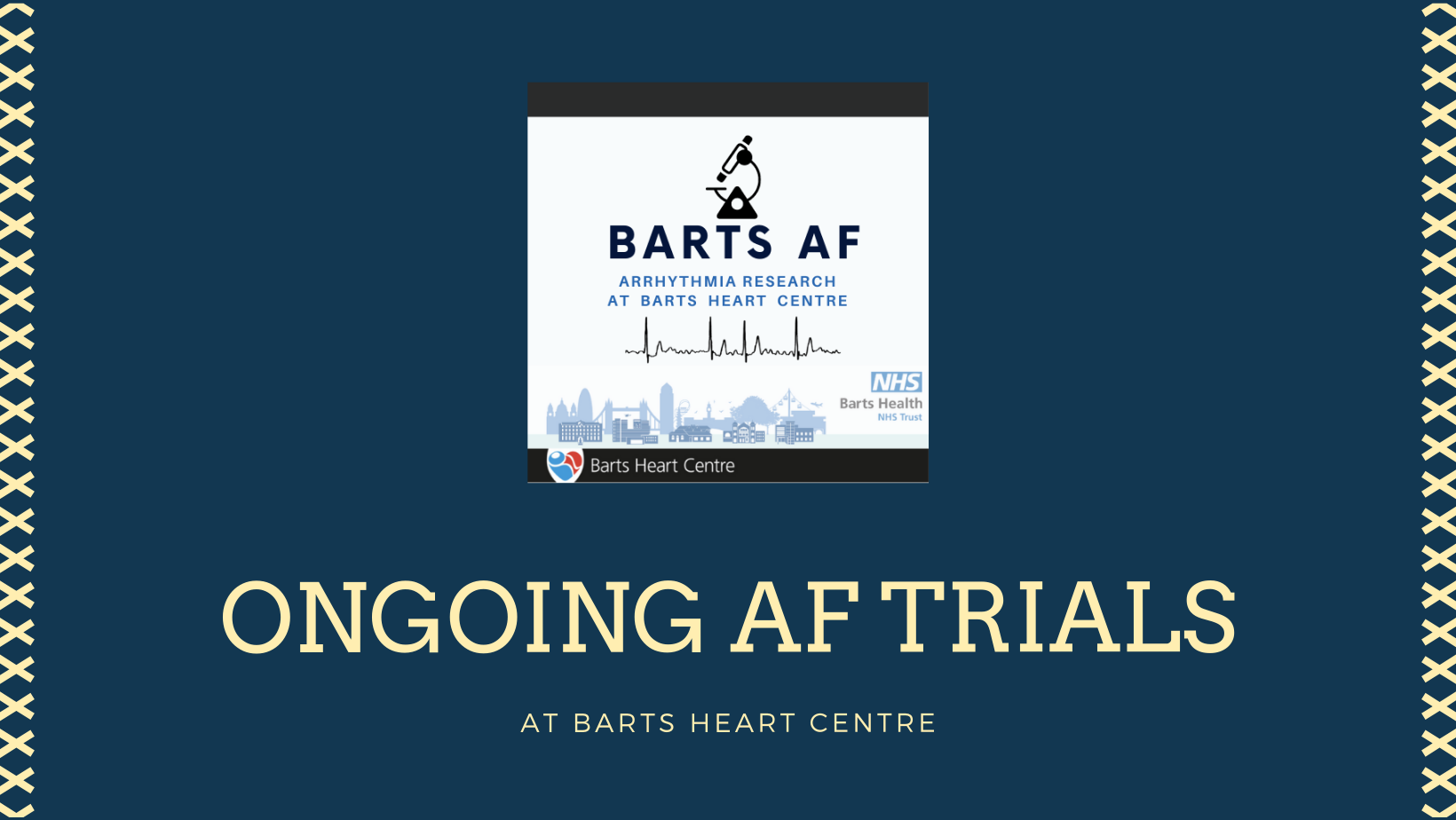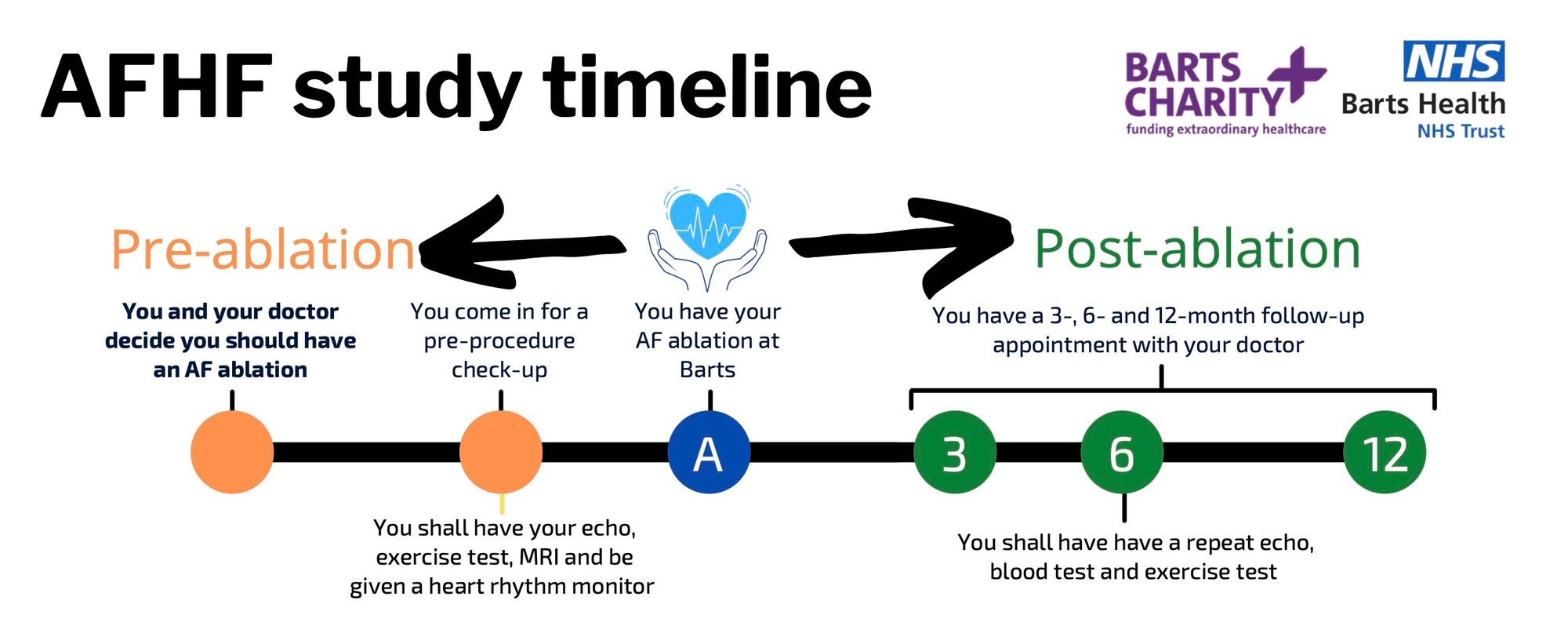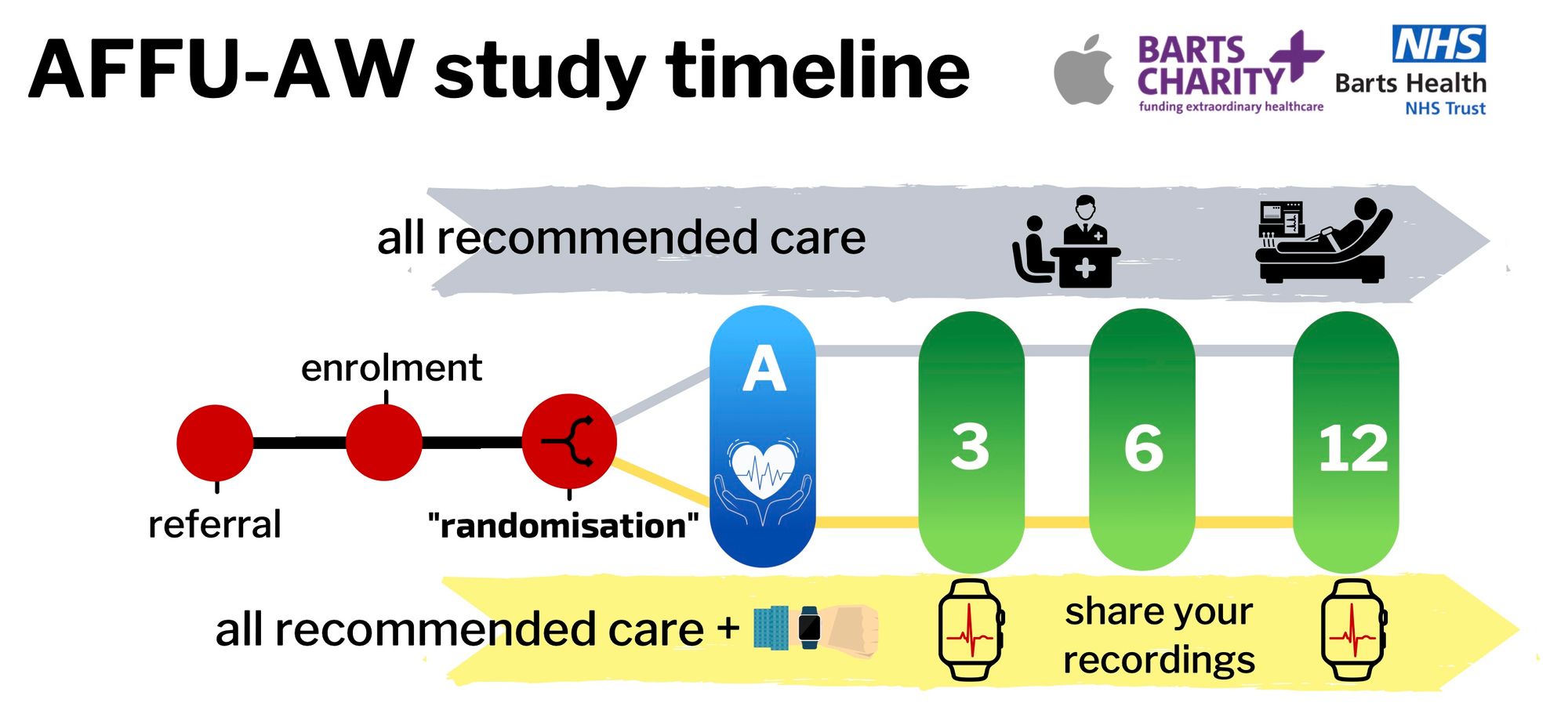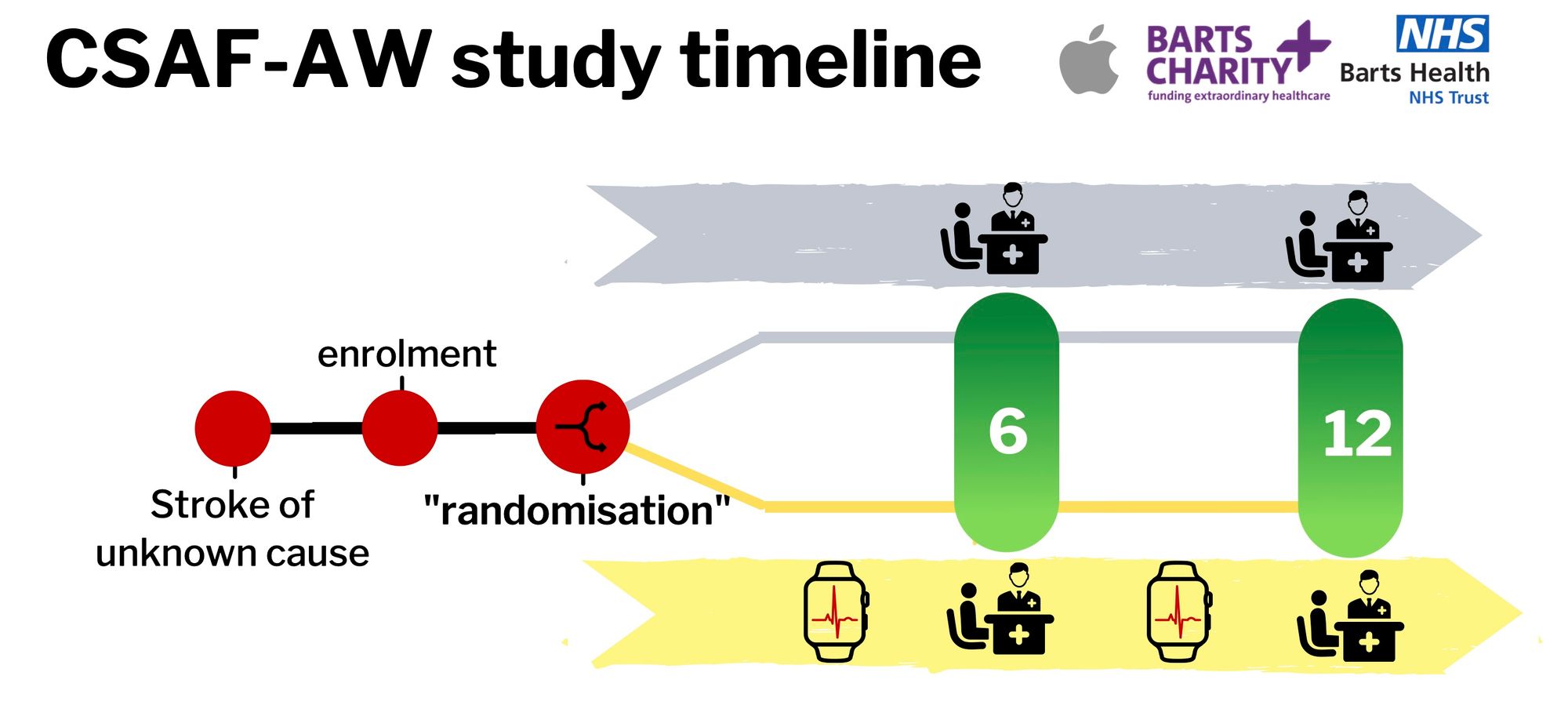Ongoing trials

This list is not exhaustive but below are the details of three trials that we are actively recruiting patients for
AFHF study

Atrial Fibrillation (referred to as AF) effects more than 2% of all adults in the UK. But the impact it has varies greatly from person-to-person. On one end of the spectrum, it may be picked up incidentally when you go to the GP- without you noticing any symptoms at all! On the other end, it can suddenly cause breathlessness, palpitations, dizziness needing emergency hospital admissions. On a deeper level, if you do a heart scan, you would see some working at full strength whilst in AF, whereas others are severely weakened.
Why this variability exists in unknown and how AF actually drives the heart weakness is is also unclear. If we could select the patients with heart weakness directly due to the AF it would help us to identify those patients most likely to improve their heart function after the AF treatment and thus justify invasive and expensive treatments like AF catheter ablation; which is effective at restoring normal rhythm but has some risks attached.
We suspect the characteristics of the AF, such as how irregularly it makes the heartbeat, can be used to predict which patients will respond better. Studies of heart cells in the lab as well as animal models have suggested this characteristic may be the driver of AF-induced heart muscle weakness. If we could ‘measure’ irregularity it may be a potential predictor of improvement after treatment.
We will be looking at other potential predictors measured during scans and tests too. We will also explore whether there are predictors of which patients gain the most symptomatic benefit and gain insight into why some people develop symptoms of AF, whereas others do not.
By studying the structural and functional effects of catheter ablation in patients with HF we hope to better understand the relationship between the two diseases.
AFFU-AW study

study details here
CSAF-AW study
